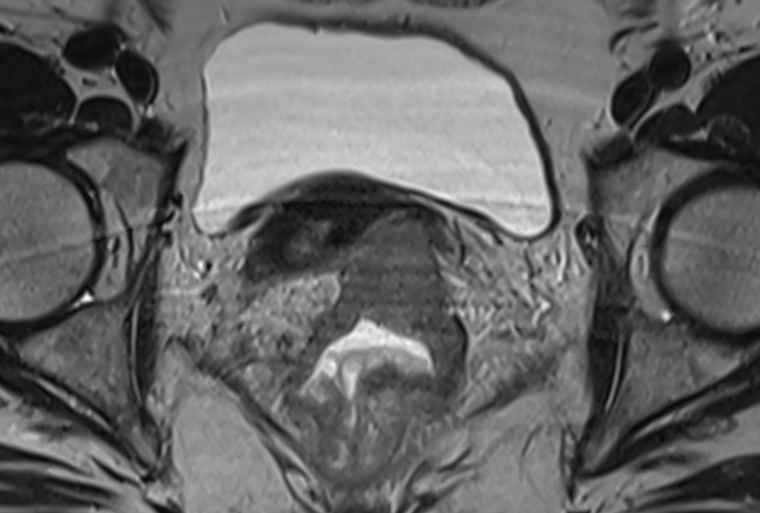New research from our Arun Krishnaraj, MD, MPH, and collaborators suggests that magnetic resonance imaging (MRI) can spare many patients with rectal cancer from invasive surgery and the lifelong side effects that the surgery can cause.
The surgery, known as a “total mesorectal excision," removes a substantial portion of the bowel. This can be lifesaving but it can also lead to the need for a permanent colostomy bag and cause sexual dysfunction, among other unwanted effects.
To determine if MRI could help patients avoid the surgery, Dr. Krishnaraj and his colleagues analyzed outcomes from 277 participants in the Organ Preservation in Rectal Adenocarcinoma (OPRA) trial. The OPRA Consortium researchers found that MRI was very effective for predicting the patients’ overall survival, the risk of their cancer returning and their chances for keeping their bowel intact.
That information could be invaluable for determining if a patient needs to undergo the surgery.
"Using newer MRI techniques, we are now able to predict much better than in the past whether any cancer remains and, if so, whether it will come back and spread,” Dr. Krishnaraj told me. “No one wants to get surgery if they can avoid it. Now we have a powerful tool to help patients and their doctors predict who would benefit from surgery after initial chemotherapy and radiation and who can likely avoid surgery.”
This MRI crystal ball can likely be made even more effective by combining it with data from endoscopies (visual inspections) after treatment, the OPRA researchers say. They are urging additional study of the potential of that combination.
“I am optimistic that continued advancement in MRI and other tools like endoscopy will provide better information about future outcomes,” Dr. Krishnaraj said. “Ultimately, I would love to get close to 99% predictive probability in better informing our patients about their potential risk for recurrence or spread of their cancers following treatment. We may not be there quite yet, but that is our goal.”
